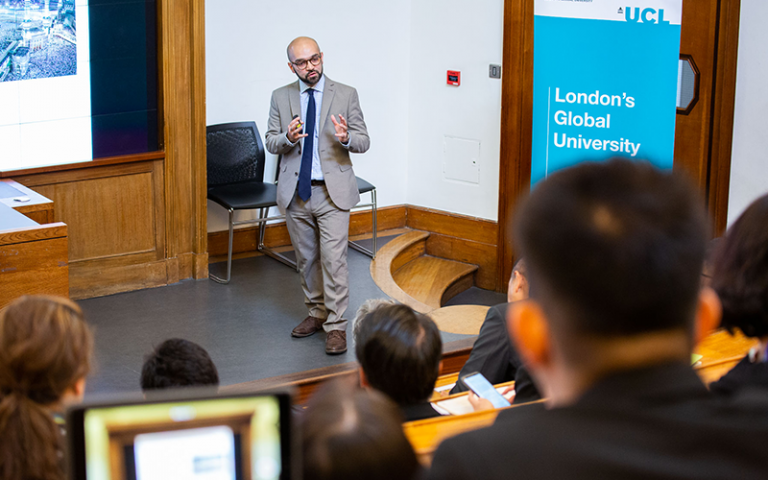UCL medical school shares expertise to ensure high-quality medical education worldwide
The UCL Medical School has worked with universities in four continents to tailor clinical curricula to meet local needs and provide better education for doctors training around the globe.

26 February 2021
To raise standards of medical education globally and encourage more clinicians to build careers within the healthcare systems in their home countries, staff in the UCL Medical School are collaborating with medical educators around the world to support teaching programmes and drive up education standards.
“We are working with partner institutions across the globe to adapt elements of UCL’s internationally recognised medical programmes and tailor them to make them relevant to different local cultural, ethical and regulatory contexts,” explains Dr Ahmed Rashid, who leads the UCL Medical School Education Consultancy Unit.
In one partnership, UCL academics worked with colleagues at New Giza University, Egypt, to devise modern and innovative undergraduate medicine, dentistry, and pharmacy programmes, to be taught in Egypt. They used established materials, assessments, and processes from the equivalent programmes at UCL as the programme’s basis, and adapted them to Egyptian sociocultural, ethical, professional and regulatory frameworks.
Dr Rashid’s research with students and educators in partner institutions has identified challenges such as language barriers and differing sociocultural traditions, which have been overcome by working with local education leaders to develop personalised programmes that fit the local context.
“These adaptations help to ensure graduates develop a sense of social responsibility and an understanding of local health challenges, making it more likely that they will stay in the healthcare system in their home country, where they are needed most,” explains Dr Rashid.
Alongside projects in China, Thailand, Saudi Arabia and Jordan, Dr Rashid and colleagues in UCL Medical School have worked closely with the University of Toronto, one of UCL’s strategic partners. In 2017, using UCL Global Engagement Office Strategic Partner seed funding, the two teams observed each other’s work overseas: UCL’s work in Egypt and the University of Toronto’s collaboration with Addis Adaba University in Ethiopia.
“Given that our activities are similar, we wanted to compare our different approaches and their consequences”, explains Dr Rashid.
These adaptations help to ensure graduates develop a sense of social responsibility and an understanding of local health challenges, making it more likely that they will stay in the healthcare system in their home country, where they are needed most.
“Our partnerships with medical schools worldwide provide valuable opportunities to understand the experiences of medical students and educators in different country settings, enabling us to design effective learning programmes that are helping to raise standards of medical education, internationally,” explains Dr Rashid.
 Close
Close


